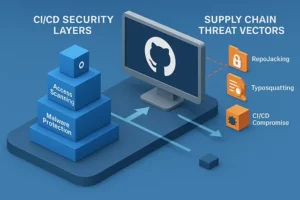Revolutionizing Blockchain for Cross-Border Payments with Technology Excellent

Blockchain for cross-border payments in today’s interconnected world, cross-border payments play a vital role in facilitating global trade and economic growth. However, traditional payment systems often suffer from inefficiencies, high costs, and delays. You’ve probably read it already: Blockchain-based Supply Chain Solutions: Revolutionizing Transparency and Efficiency. Enter blockchain technology, a decentralized and transparent system that holds immense potential for transforming cross-border payments. In this article, we will explore how blockchain technology can address the challenges associated with cross-border payments, examine real-world use cases, discuss the benefits and limitations of its implementation, and shed light on the current initiatives and future outlook of this revolutionary technology.
See also : Ethereum Wallet Reviews: Choosing the Best Wallet for Your Crypto Assets

Understanding the Challenges in Cross-Border Payments
Cross-border payments have long been plagued by various challenges. High transaction fees, lengthy processing times, lack of transparency, currency conversion issues, and regulatory compliance complexities have hindered the efficiency and effectiveness of these transactions. Blockchain technology offers a promising solution to address these challenges. By leveraging its decentralized nature, immutability, and smart contract capabilities, blockchain can streamline and enhance cross-border payment processes.
How Blockchain Technology Can Address Cross-Border Payment Challenges
Blockchain technology holds several key attributes that make it suitable for revolutionizing cross-border payments. Its decentralized nature eliminates the need for intermediaries, reducing transaction costs and processing times. The transparency and immutability of blockchain ensure greater accountability and trust in payment transactions. Additionally, blockchain’s smart contracts enable automated and secure execution of payment terms. Currency conversion can also be simplified by using stablecoins or digital currencies built on blockchain networks.
Use Cases of Blockchain in Cross-Border Payments
Numerous real-world use cases demonstrate the effectiveness of blockchain in cross-border payments. Ripple and its digital asset XRP enable instant and cost-effective transactions between financial institutions worldwide. Stellar and its Lumens cryptocurrency facilitate affordable remittances for individuals. IBM’s World Wire utilizes blockchain technology for real-time settlement and enables seamless payment transfers. SWIFT’s GPI Link is exploring blockchain integration to enhance the speed and transparency of Blockchain for cross-border payments.
Potential Benefits and Advantages of Blockchain in Cross-Border Payments
Implementing blockchain technology in cross-border payments brings a host of benefits. The increased speed and efficiency of transactions reduce processing times from days to minutes. Lower transaction costs result from eliminating intermediaries and reducing associated fees. Enhanced security and privacy safeguards sensitive payment information, preventing fraudulent activities. Improved transparency and traceability enable users to track and verify payment transactions. Lastly, blockchain streamlines compliance with regulatory requirements by automating processes and ensuring data integrity.
Challenges and Limitations of Implementing Blockchain for Cross-Border Payments
While Blockchain for cross-border payments offers significant advantages, there are challenges to its widespread implementation. Scalability remains a concern, as existing blockchain networks may struggle to handle the high volume of cross-border transactions. Integrating blockchain with existing payment systems requires careful planning and cooperation. Regulatory and legal uncertainties, particularly regarding cryptocurrencies, pose challenges for adoption. Moreover, achieving global consensus and standardization across different jurisdictions is a complex task.
Current Initiatives and Future Outlook
Financial institutions and banks are increasingly embracing blockchain technology for cross-border payments. Collaborations and partnerships are formed to develop innovative solutions. Central banks are exploring the concept of central bank digital currencies (CBDCs) built on blockchain. These initiatives indicate a growing recognition of the transformative potential of Blockchain for cross-border payments. As technology advances, we can expect further refinements, increased adoption, and the emergence of new blockchain-based payment systems.
Conclusion Blockchain for Cross-Border Payments
Blockchain technology presents an unprecedented opportunity to revolutionize cross-border payments. By addressing the challenges of high costs, lengthy processing times, and lack of transparency, blockchain offers a faster, more secure, and cost-effective alternative. While challenges exist, ongoing initiatives and collaborations signify the growing interest and commitment to harness the potential of Blockchain for cross-border payments. As this transformative technology continues to evolve, it holds the promise of reshaping the global payment landscape and driving economic growth in the digital age.
And for those of you who want to grow your Instagram account, you can directly use our service free instagram followers and you can like your post on instagram with Free instagram likes







